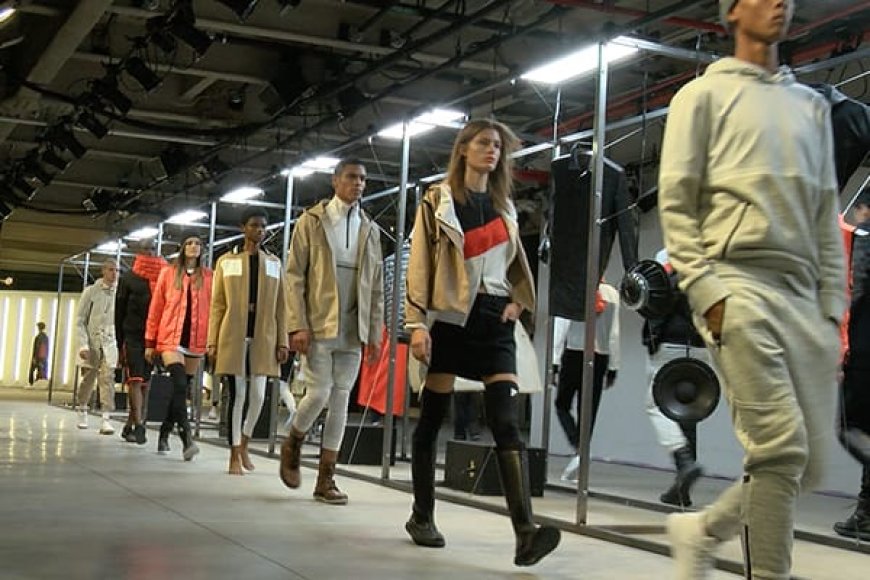Target Perfected Cheap Chic But This Unlikely Player Wants the Market
This e-commerce player is known for price and selection. But perhaps it could do more with fashion.

The global pandemic clearly demonstrated the paradox that is Amazon Inc. (AMZN) - Get Free Report. People could not leave their homes so the e-commerce giant became even more indispensable to daily life.
But as Amazon quickly learned, being indispensable is not very lucrative. In fact, the things that people love Amazon most — convenience, selection, low prices — costs a lot of cash, which is why the retailer has failed to generate consistent profits from its core retail business. (Amazon Web Services is the only business that makes money.)
However, there is a particular category in retail in which Amazon has been trying to generate not just sales but profitable sales: fashion.
Gunning for Cheap Chic
It’s one thing to just sell clothes and shoes; Amazon already does that. Last year, the retailer generated $50.6 billion in apparel, footwear, and accessories sales, according to Coresight Research.
But what Amazon wants to do is to reimagine itself as the place where fashion forward consumers shop because they want the latest trends and designs. Such customers are repeat buyers who generate the real profits.
Burt Flickinger, managing director of Strategic Resources consulting firm in New York, thinks Amazon is actually well positioned to challenge Target Corporation (TGT) - Get Free Report and fast fashion retailers like Shein, H&M, and Zara. Specifically, Amazon is eying the cheap chic consumer, who wants consistently on trend but affordable clothing.
Amazon has already got the affordable thing worked out. But where the retailer really wants to distinguish itself is to design cheap chic fashion that doesn’t destroy the environment, Flickinger said.
Fast fashion generates tons of waste because consumers quickly swap out wardrobes. Here are some eye popping stats, courtesy of Earth.org:
- Of the 100 billion garments produced each year, 92 million tons end up in landfills.
- The apparel industry’s global emissions will jump 50% by 2030
- Consumers only wear pieces of clothing seven to ten times before tossing them. That’s a decline of more than 35% in just 15 years.
Studies also show that Gen Z consumers want products that reflect their concerns about global warming and the effects of climate change.
To that end, Amazon has been heavily recruiting fashion graduates from Cornell University, who studied in the school’s human centered design program, Flickinger said. Specifically, the company wants to hire people with skills in textile design, fiber innovation, and non-toxic ink, he said.
Sustainable cheap chic is “the great void is fashion,” Flickinger said.
Not a Fashion Retailer
Unfortunately, Amazon’s record on fashion is not so good. The company has tried several times to position itself as a serious fashion player but without much luck so far, said DeAnn Campbell, head of retail strategy and insights for AAG Consulting in Atlanta.
Getting consumers to see Amazon as a trendy apparel retailer is a tall order, she said. The big problem is that consumers primarily shop at Amazon for cost and convenience and little else.
“It’s like an albatross around their necks and they can't get rid of it,” Campbell said.
Indeed, the top five reasons why consumers buy apparel at Amazon, according to the Coresight report, are as follows: wide choice of brands (56.2%); good cheap delivery (49.3%); free delivery with Prime (47.2%); easy website search (46.1%); and lowest prices (41.8%).
Still, Amazon has plenty of opportunity to establish a fashion mindset in consumers. Nearly 26% of consumers believe that Amazon offered up-to-date collections, compared to just 8.5% last year and 10.5% in 2021.
The company has also built strong private label brands in men’s and women’s apparel, including 7Goals, Meraki, and 28 Palms.
“Overall, the interest in Amazon’s private-label offerings remains strong, likely implying that the platform’s private label is gradually translating into a solid brand,” the Coresight report said.
“Going forward, retailers should learn from Amazon’s success at converting shoppers to its private-label offerings,” the report said. “Private label is increasingly important for retailers as they seek to maintain an attractive price edge and increase their supply chain control.”
So although Amazon has met little success with fashion, the company has the foundational tools to establish a market for sustainable cheap chic.
What's Your Reaction?



























































